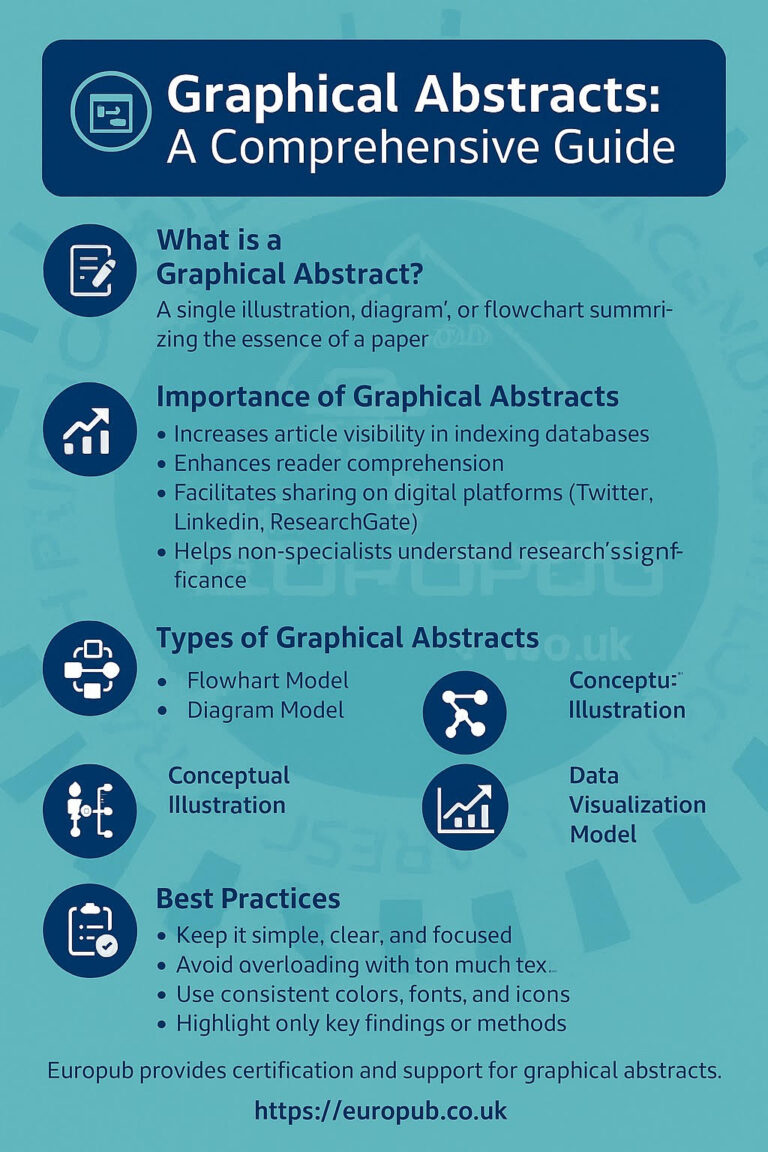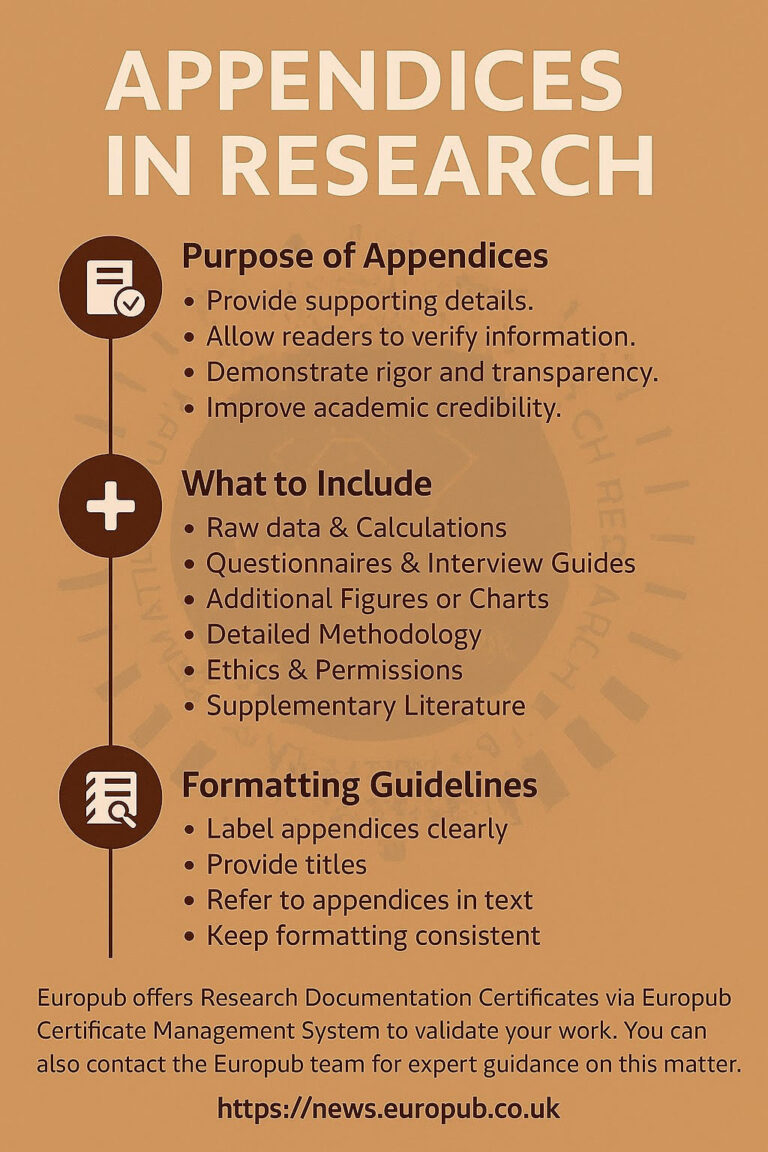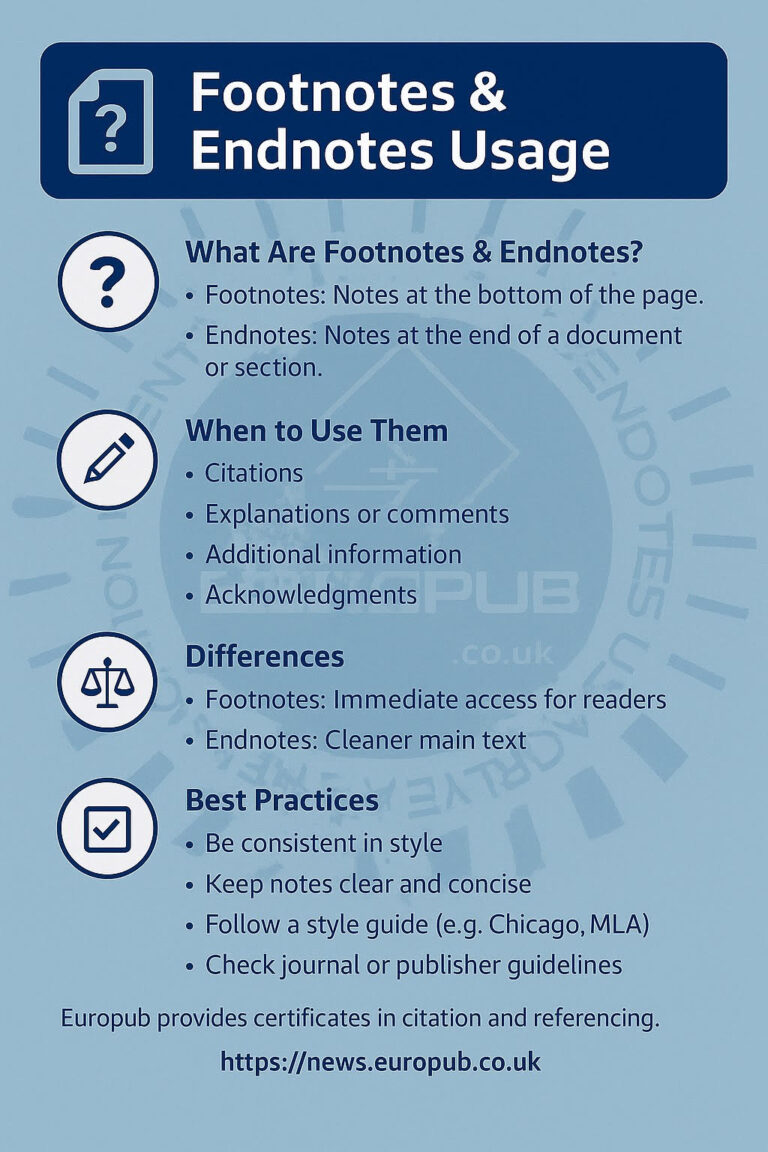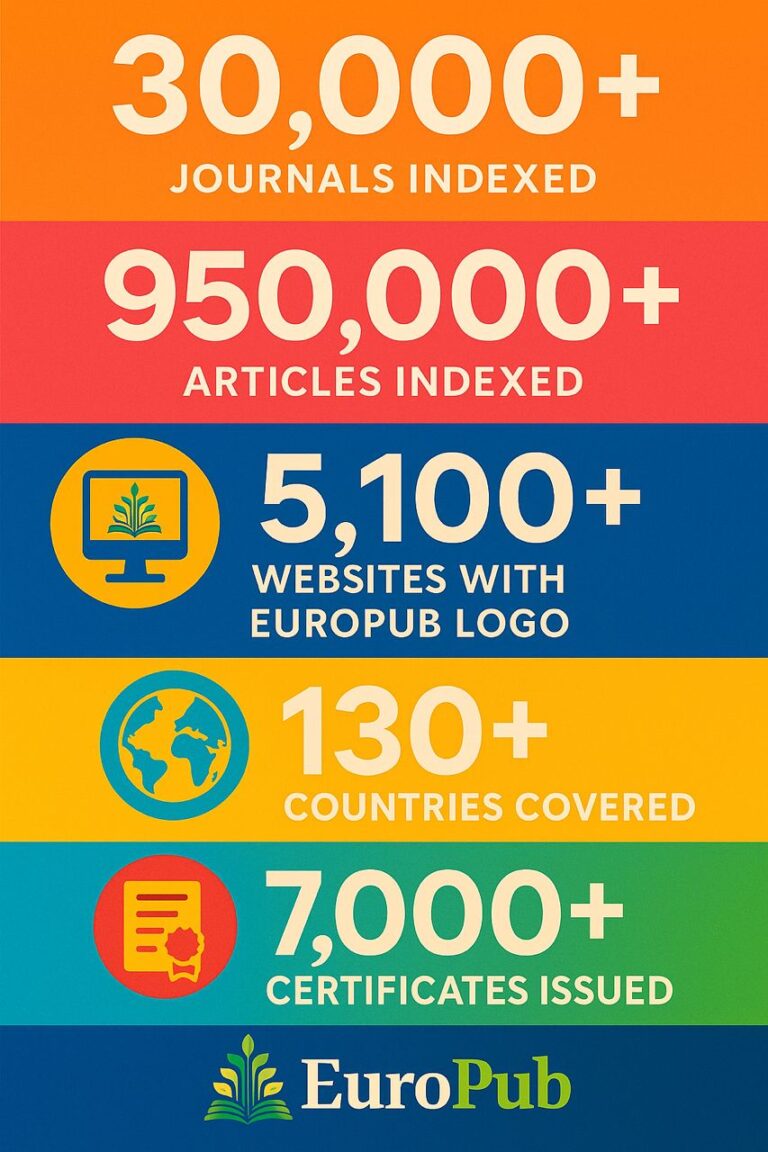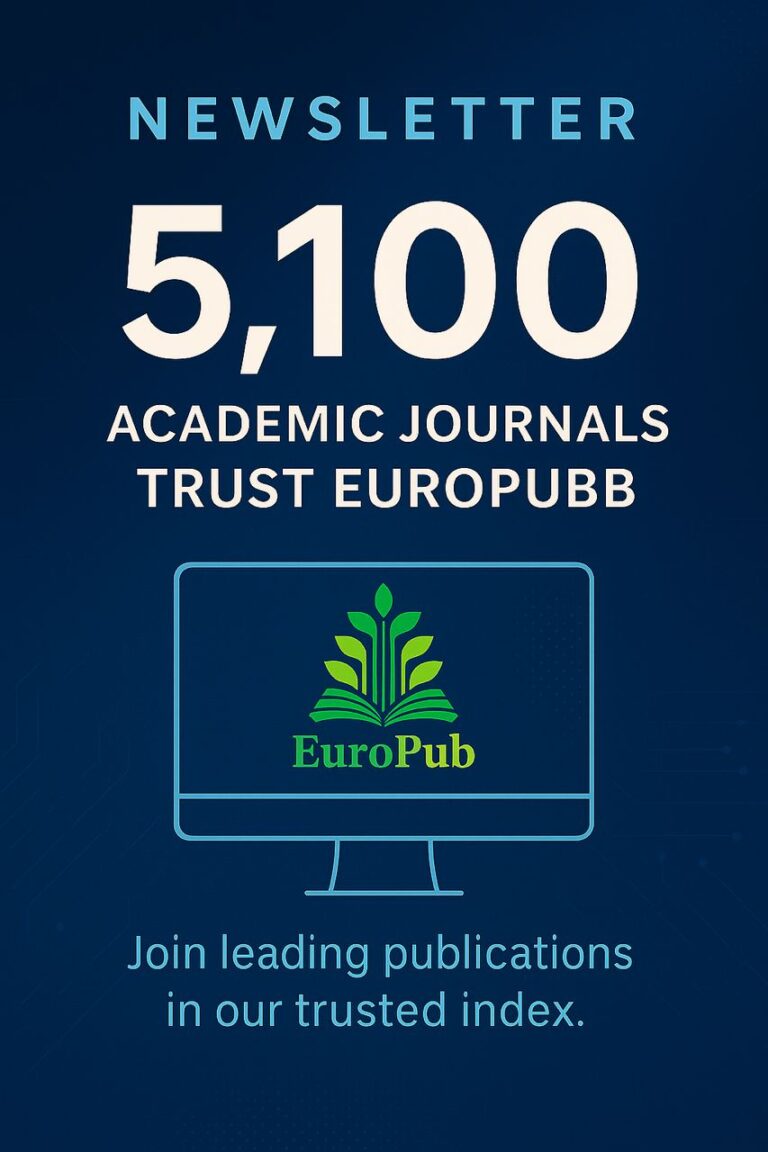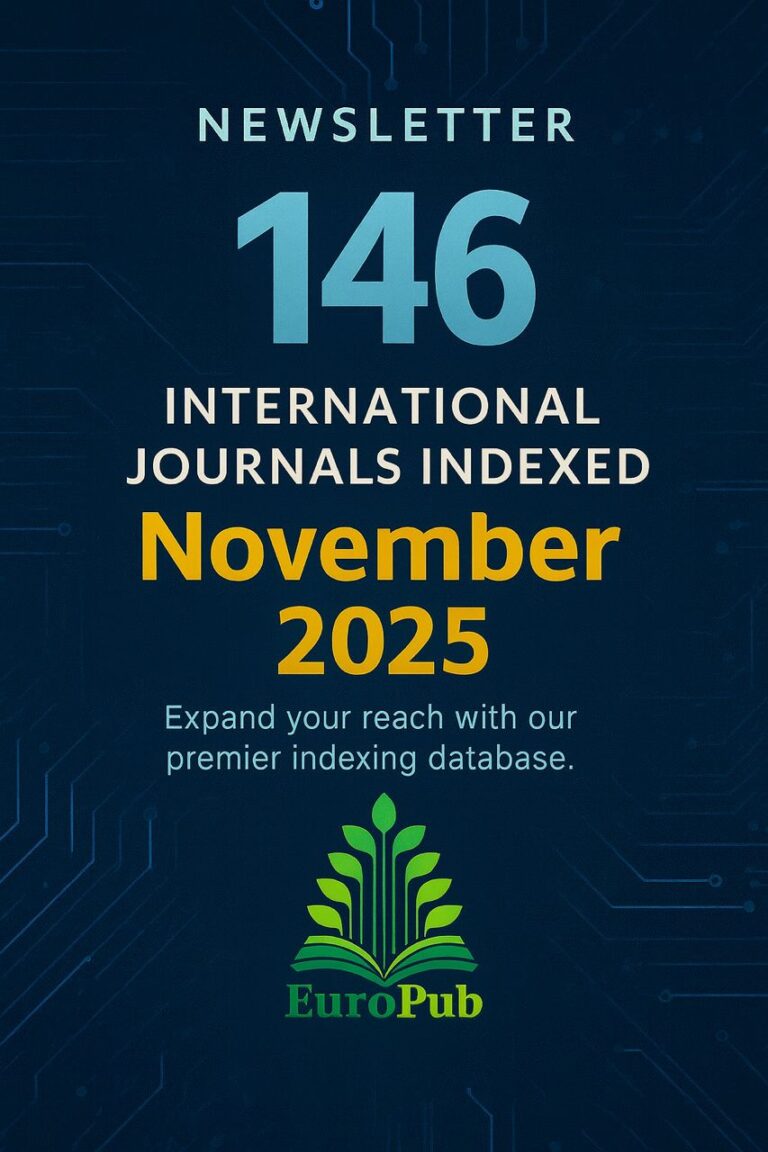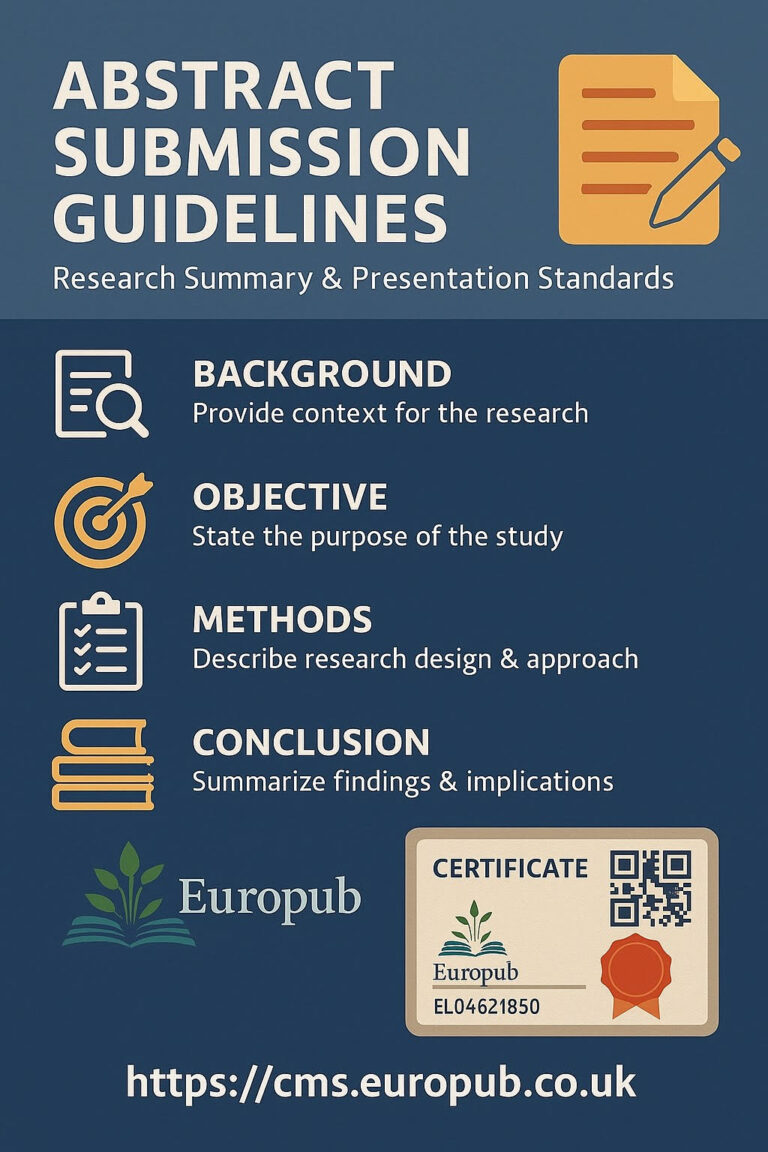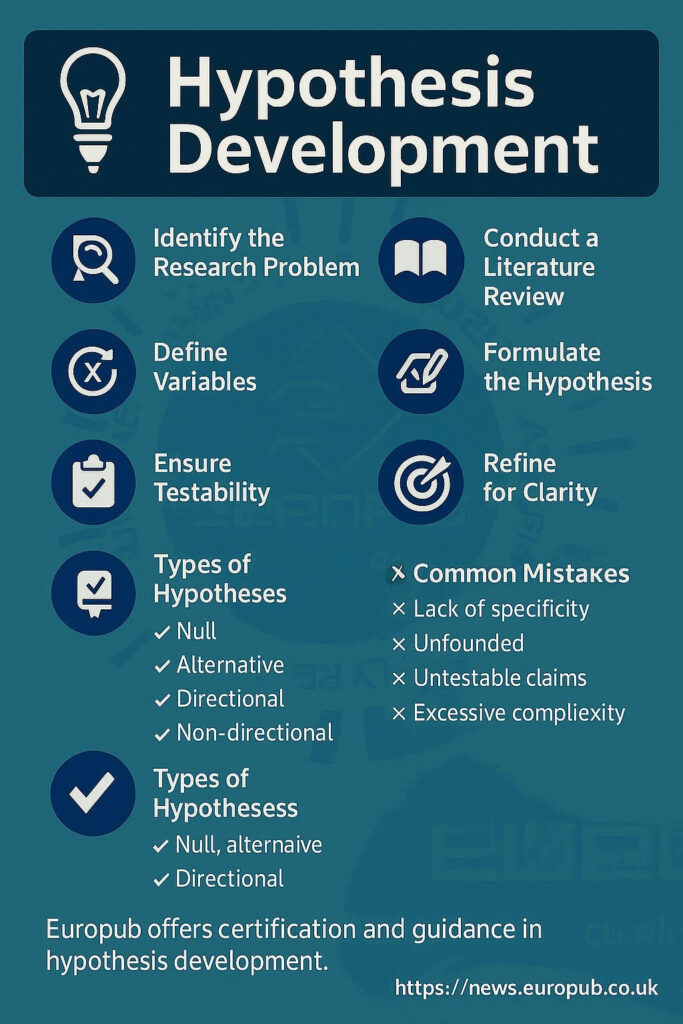
Introduction
At the heart of every scientific research project lies a clear, testable hypothesis. A hypothesis is not simply a guess—it is a carefully crafted statement that predicts the relationship between variables, providing the foundation for research design, data collection, and analysis.
Without a well-developed hypothesis, research risks becoming unfocused, lacking direction and clarity. This guide explains what a hypothesis is, its types, the process of developing one, and common pitfalls to avoid.
What is a Hypothesis?
A hypothesis is a tentative explanation or prediction about the relationship between two or more variables.
- It is based on theory or prior research.
- It is testable through experiments, surveys, or other methods.
- It serves as the basis for drawing conclusions.
Example:
- Students who sleep at least 7 hours before exams will perform better than those who sleep less.
Importance of Hypothesis in Research
- Gives Direction – Defines the focus of the study.
- Determines Methodology – Helps select data collection and analysis methods.
- Promotes Objectivity – Reduces bias by setting expectations beforehand.
- Facilitates Analysis – Statistical tests are designed around hypotheses.
- Connects Theory & Practice – Bridges conceptual frameworks with empirical testing.
Types of Hypotheses
1. Null Hypothesis (H₀)
- States there is no relationship between variables.
- Example: There is no difference in exam performance between students who sleep 7 hours and those who don’t.
2. Alternative Hypothesis (H₁)
- States there is a relationship between variables.
- Example: Students who sleep 7 hours perform better in exams than those who don’t.
3. Directional Hypothesis
- Specifies the expected direction of the relationship.
- Example: Increased study hours will lead to higher grades.
4. Non-Directional Hypothesis
- States a relationship exists but does not specify the direction.
- Example: There is a relationship between study hours and grades.
5. Simple Hypothesis
- Predicts a relationship between two variables.
- Example: Smoking increases the risk of lung cancer.
6. Complex Hypothesis
- Predicts a relationship between multiple variables.
- Example: Diet, exercise, and stress levels affect heart disease risk.
Steps in Hypothesis Development
1. Identify the Research Problem
- Define what you want to study.
- Example: Low student performance in online learning.
2. Conduct a Literature Review
- Explore existing studies to identify gaps.
- Example: Few studies connect online engagement with exam outcomes.
3. Define Variables
- Independent Variable (IV): The cause or factor manipulated.
- Dependent Variable (DV): The effect or outcome measured.
4. Formulate the Hypothesis
- Based on theory, evidence, and logical reasoning.
- Example: Students with higher online engagement will achieve better exam results.
5. Ensure Testability
- Hypotheses must be measurable and falsifiable.
6. Refine for Clarity
- Avoid vague terms like “better” or “more.”
- Use precise, measurable terms.
Criteria of a Good Hypothesis
 Clear and concise.
Clear and concise.
 Based on theory or prior knowledge.
Based on theory or prior knowledge.
 Testable with available methods.
Testable with available methods.
 Specifies variables and relationships.
Specifies variables and relationships.
 Ethical and feasible.
Ethical and feasible.
Common Mistakes in Hypothesis Development
 Vague statements without measurable variables.
Vague statements without measurable variables.
 Confusing research questions with hypotheses.
Confusing research questions with hypotheses.
 Making assumptions that cannot be tested.
Making assumptions that cannot be tested.
 Developing too broad or too narrow hypotheses.
Developing too broad or too narrow hypotheses.
Real-Life Example
A medical study aimed to explore whether daily physical exercise reduces anxiety in university students.
- Null Hypothesis (H₀): Exercise has no impact on anxiety.
- Alternative Hypothesis (H₁): Exercise reduces anxiety levels.
- Method: Survey + psychological assessment before and after a 6-week fitness program.
- Finding: Statistical analysis confirmed significant anxiety reduction.
Tools and Resources
Europub Certification & Guidance
Europub provides Hypothesis Development & Research Design Certificates via its Certificate Management System.
 Certificate of Hypothesis Design Competency
Certificate of Hypothesis Design Competency
 Certificate of Quantitative & Qualitative Research Frameworks
Certificate of Quantitative & Qualitative Research Frameworks
With Europub certification, researchers can:
- Validate their research design for journal and conference submission.
- Gain credibility with funding institutions.
- Demonstrate methodological expertise to employers.
 Apply here: https://cms.europub.co.uk
Apply here: https://cms.europub.co.uk
 Main site: https://europub.co.uk
Main site: https://europub.co.uk
 Newsletter: https://news.europub.co.uk
Newsletter: https://news.europub.co.uk
 You can also seek direct guidance from Europub experts to refine your hypotheses and strengthen your study design.
You can also seek direct guidance from Europub experts to refine your hypotheses and strengthen your study design.
Conclusion
Hypothesis development is not guesswork—it is a structured process that combines theory, logic, and evidence. By crafting strong, testable hypotheses, researchers ensure their work is scientifically sound and impactful. Europub supports this process with certification and expert guidance, helping scholars achieve global recognition.
